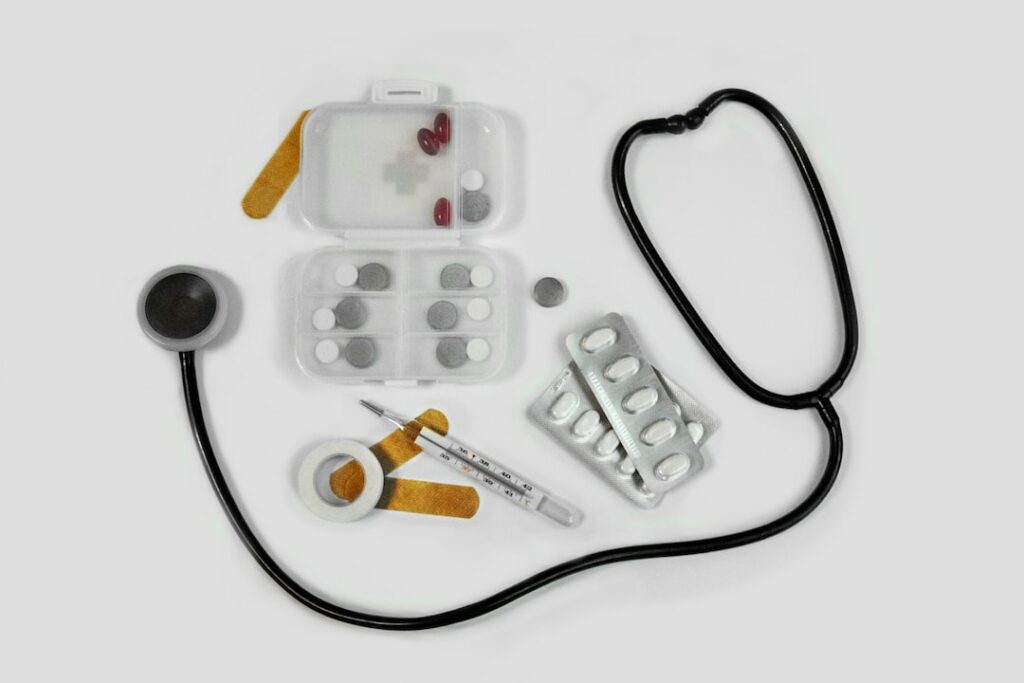


Are you tired of waking up at night with that painful burning sensation in your chest and throat? Well, you’re in luck! In this article, we’ll explore the causes of acid reflux at night and provide you with six triggers and solutions to help you find relief.
From adjusting your sleep position to making simple lifestyle changes, we’ve got you covered.
Say goodbye to those sleepless nights and hello to a more comfortable, acid reflux-free sleep.
Acid reflux, or gastroesophageal reflux disease (GERD), is a digestive disorder. It happens when stomach acid flows backward into your esophagus, the tube connecting your throat to your stomach. Normally, a muscle called the lower esophageal sphincter (LES) acts like a valve, preventing stomach acid from going back up. However, when the LES weakens or malfunctions, it leads to acid reflux.
Symptoms of acid reflux include a burning sensation in the chest (heartburn). You can experience regurgitation, bloating, and difficulty swallowing. If not managed, chronic acid reflux can damage the esophagus. It can result in inflammation, ulcers, and, in severe cases, contributing to the development of Barrett’s esophagus, a pre-cancerous condition.
To manage acid reflux, lifestyle changes, and dietary adjustments are key. In some cases, medications or surgery may be needed to strengthen the LES and alleviate symptoms.
If you experience acid reflux at night, there are several triggers that may be causing your symptoms. Nighttime heartburn can be quite bothersome and disrupt your sleep.
To prevent acid reflux at night, try some sleep tips:
These lifestyle changes may help alleviate nighttime heartburn and improve your sleep quality.

Choose a sleep position that can help alleviate acid reflux symptoms. The position you sleep in can have a significant impact on acid reflux at night. By making a simple adjustment to your sleep position, you can reduce symptoms of GERD and find heartburn relief.
Sleeping on your left side is often recommended. It helps keep the contents of your stomach down and prevents acid from flowing back up. This position also helps your stomach empty more quickly. It reduces the likelihood of acid reflux.
Elevating the head of your bed can also reduce acid reflux. By using gravity to keep stomach acid in your stomach.
To address the impact of dietary factors on acid reflux at night, it is essential to consider the role of food choices and their effects on GERD symptoms. Certain foods can trigger acid reflux and exacerbate symptoms, while others can help reduce stomach acid production and alleviate discomfort. Here are some common food triggers for heartburn and tips on how to reduce their impact:
| Food Triggers | Ways to Reduce Acid Reflux |
|---|---|
| Spicy foods | Opt for milder flavors and seasoning |
| Citrus fruits | Choose non-acidic fruits like bananas or melons |
| Tomatoes | Cook them thoroughly to reduce acidity |
| Fatty foods | Opt for leaner options and avoid deep-fried foods |
| Caffeinated drinks | Switch to decaffeinated versions or herbal teas |

When managing nighttime acid reflux, one effective approach is to explore the use of medications. Medications can help reduce stomach acid levels and ease symptoms associated with acid reflux at night. Here are a few medications that can be used to manage nighttime acid reflux:
– Antacids: These over-the-counter medications neutralize stomach acid and provide temporary relief from heartburn and acid reflux.
– H2 receptor blockers: These medications reduce the production of stomach acid, providing longer-lasting relief from acid reflux symptoms.
– Proton pump inhibitors (PPIs): PPIs block and reduce the production of stomach acid. They’re often prescribed for more severe cases of acid reflux and should be taken under a doctor’s guidance.
By incorporating these medications into your nighttime acid reflux management plan, you can find relief from symptoms and improve your quality of sleep.
Remember to consult with a healthcare professional to determine the best medication and dosage for your specific needs.

To prevent acid reflux at night, you can make lifestyle changes that will help alleviate symptoms and improve your sleep quality. Chronic acid reflux, also known as gastroesophageal reflux disease (GERD), can cause heartburn at night and disrupt your sleep.
By implementing certain lifestyle changes, you can reduce stomach acid and minimize the occurrence of acid reflux symptoms. One important change is to modify your diet by avoiding trigger foods such as spicy and acidic foods. It’s also recommended to eat smaller, more frequent meals and to chew your food slowly and thoroughly.
Additionally, elevating the head of your bed and sleeping on your left side can help prevent acid reflux at night.
If lifestyle changes and medications aren’t effective in managing severe acid reflux, surgical options can be considered. These surgical options aim to provide long-term relief from the symptoms of severe acid reflux, particularly at night. Here are three surgical options that can be considered:
1. Fundoplication: This surgical procedure involves joining the stomach to the esophageal sphincter to strengthen it and prevent acid reflux. It’s effective in relieving symptoms such as heartburn and regurgitation.
2. Laparoscopic anti-reflux surgery: This minimally invasive surgery involves making small incisions in the abdomen and using a laparoscope to perform the procedure. It aims to strengthen the lower esophageal sphincter and prevent acid reflux.
3. Melatonin therapy: While not a surgical option, melatonin can help prevent or ease symptoms of GERD, including acid reflux at night. Melatonin not only improves sleep quality but also reduces triggers for acid reflux.
These surgical options provide alternatives for individuals with severe acid reflux who haven’t found relief through lifestyle changes and medications. It’s important to consult with a healthcare professional to determine the most appropriate treatment approach.

You can consider using melatonin as a natural remedy for acid reflux at night. Melatonin is a hormone that regulates sleep and wakefulness, and it has been found to have potential benefits in managing acid reflux symptoms. Research suggests that melatonin can help reduce the frequency and severity of acid reflux episodes by improving sleep quality and reducing triggers for acid reflux.
Using melatonin as a natural remedy for acid reflux may be a suitable option for individuals who prefer natural alternatives and want to improve their sleep quality while reducing acid reflux and GERD symptoms. However, it is important to consult with a healthcare professional before starting any new treatment or supplement regimen.
You may also like: 9 Best Foods to Eat Before Bed | Foods with Melatonin
In conclusion, acid reflux at night can be caused by a weakened esophageal sphincter and can be alleviated by making lifestyle changes such as sleeping on your left side, reducing alcohol intake, quitting smoking, and maintaining a moderate weight.
Dietary changes, such as avoiding trigger foods and eating smaller, more frequent meals, can also help prevent acid reflux.
If lifestyle changes aren’t effective, medications or surgery may be recommended.
It’s important to consult with a healthcare professional for the best treatment options for your specific situation.
Cleveland Clinic (2022) Antacid [online]. https://my.clevelandclinic.org/health/drugs/23076-antacid
Mayo Clinic (2024) Gastroesophageal reflux disease (GERD) [online]. https://www.mayoclinic.org/diseases-conditions/gerd/symptoms-causes/syc-20361940
Medline Plus (2023) Proton pump inhibitors [online]. https://medlineplus.gov/ency/patientinstructions/000381.htm
Medline Plus (2023) H2 blockers [online]. https://medlineplus.gov/ency/patientinstructions/000382.htm